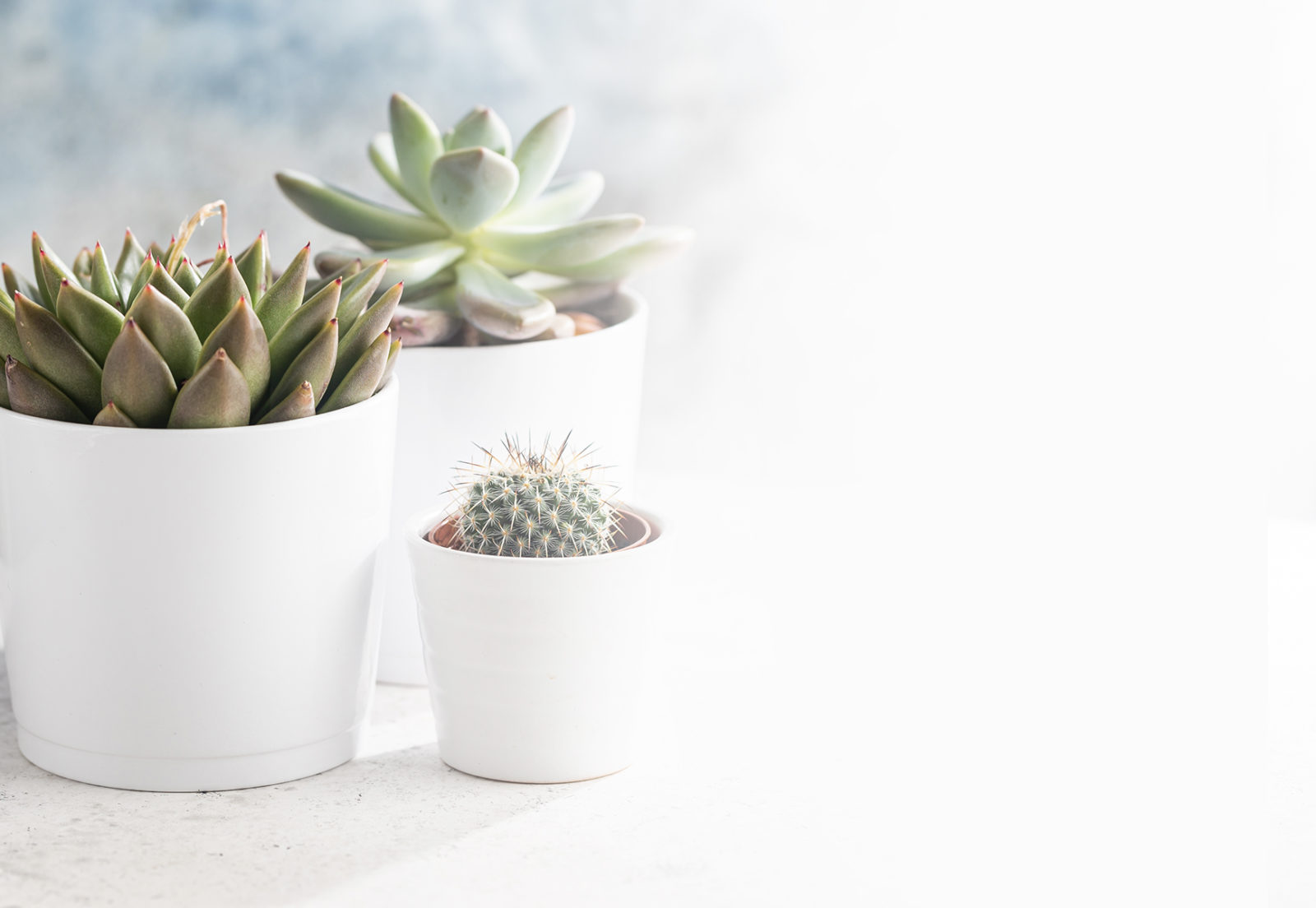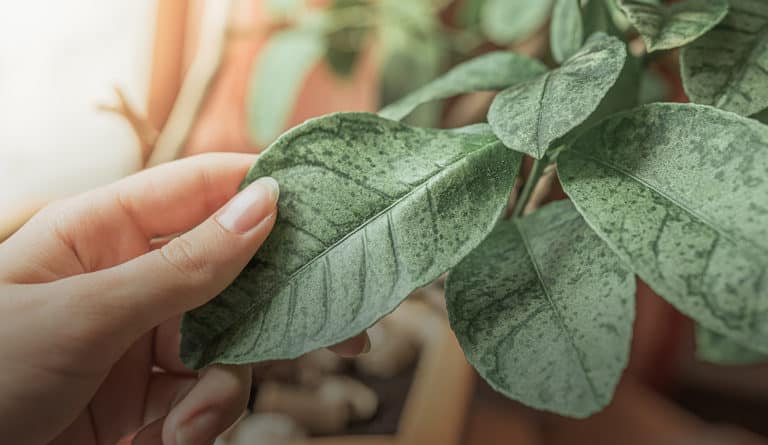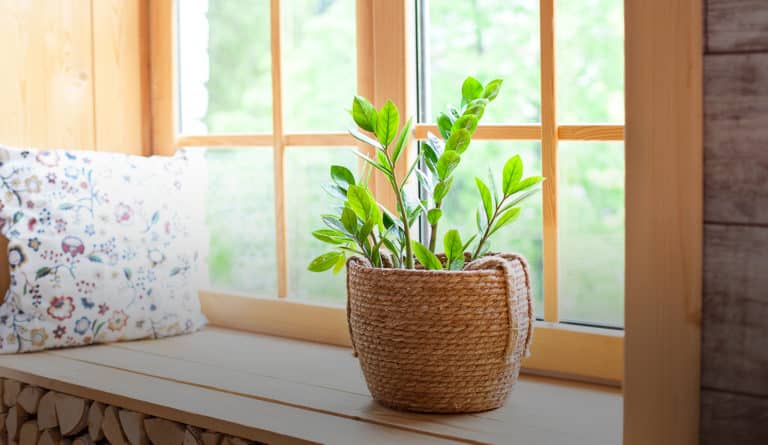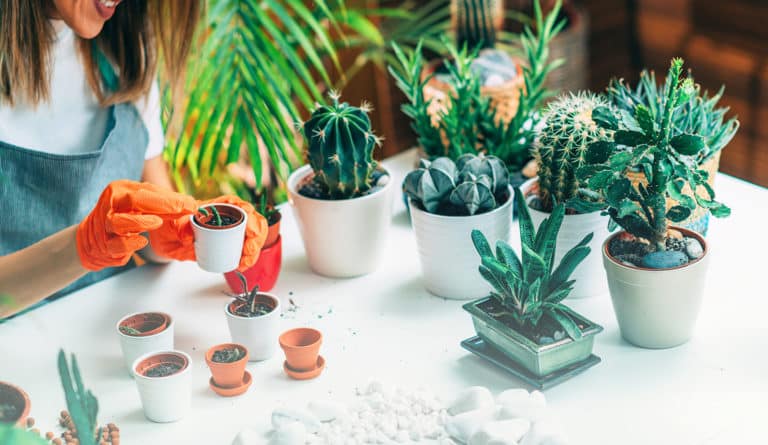light
bright and indirect
These desert plants need a lot of light to grow. But careful not to give them too much direct sunlight. They can still get a sunburn.
water + feeding
get dry between watering
The top inch or two should feel totally dry before watering these desert beauties. Water the soil directly making sure you don’t get the leaves. Beware overwatering! You can do a light feeding in Spring and Summer. They grow slow so they don’t need much.
toxic
non-toxic… mostly
While the majority of succulents are completely harmless, some cause mild mouth and stomach irritation if ingested, and their juices can cause minor skin irritation.
location
they love warm spots
Succulents handle any common household temperature just fine. They don’t like it too cold.
humidity
seriously dry guys
Do not mist. Succulents are desert plants, adapted to dry climates. Any water on their leaves can cause mold and even make their roots brittle.
size
adorable and small
Size perfect! Indoors they rarely grow more than 6 inches tall.
pro tip
drought tolerant
Succulent leaves hold water like a cactus. They need less water than most other plants. Admire often, water seldom! And make sure you water the soil, not the leaves. Let the soil thoroughly dry before re-watering.
fun fact
secret flower power
Many succulents will flower indoors. Patience though. Your friends need to mature and feel totally settled in your home. But when they do flower, OMG send us pictures!
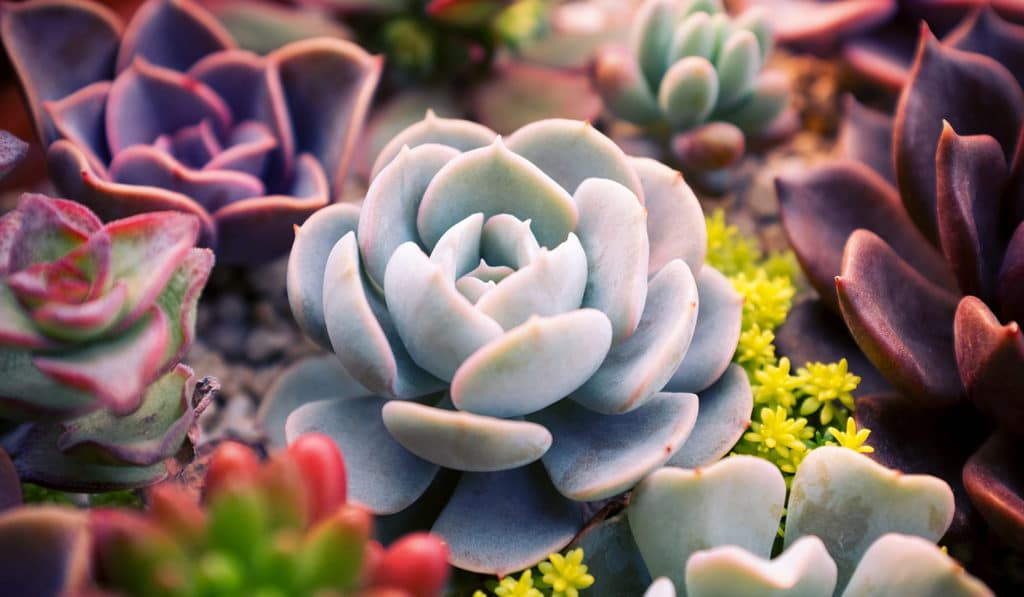
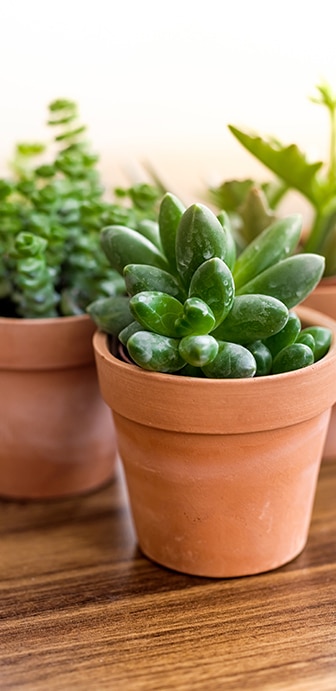
beyond the basics
-
soil & potting
These desert dwellers prefer a light, well-draining potting soil like Miracle-Gro Cactus, Palm and Succulent Potting Mix. Or, use regular potting soil and add some potting sand or perlite. A layer of sand on the top will help prevent rot. Ensure the pot has good drainage and aloe should never sit in water. Empty drainage trays if you see water collecting.
-
when to repot
Repot every 1 to 2 years in the Spring, especially with younger plants. Increase pot diameter by 2 inches every time. Want them to stay cute and little? You can stunt the growth by root trimming. In later years you can replace the top couple inches of soil instead of completely repotting.
-
propagation
Making new succulent plant babies is easy. In fact many propagate on their own. You will notice little mini versions starting grow. These “pups” can be gently separated potted as a new plant. If you’re not getting pups, remove a leaf, let it dry for a couple of days and place it on some moist soil. It should sprout roots, and voila! You have an ultra mini plant.
-
pest control
Succulents don’t typically suffer from pests, but they can sometimes get bugs. Gnats are most likely. Inspect those juicy little leaves regularly. Check out our Pest control section in Plant 101 for how to identify and deal with pests on your plant!
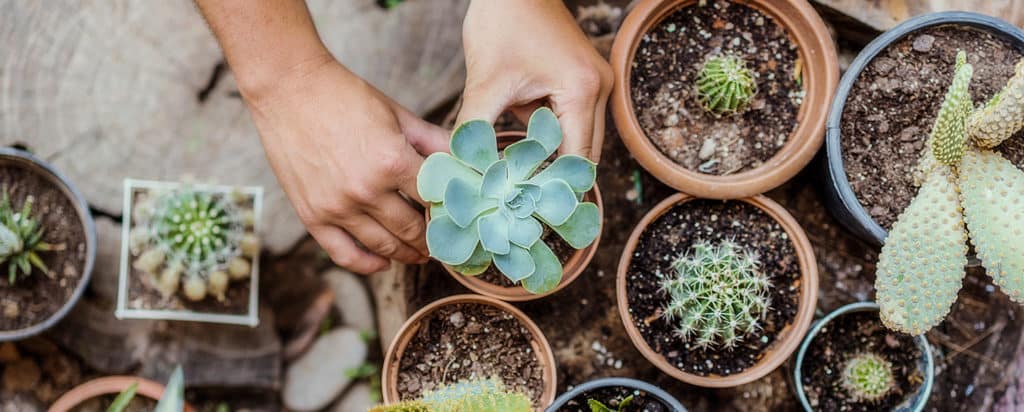
troubleshooting
-
why are the eaves turning brown, red or reddish brown?
A couple of possibilities. Maybe too much direct summer sun. Or possibly overwatering or root damage. First, moving your plant to a still-bright but less sun-blasted spot. Reduce the watering and follow our watering instructions above. If your succulent buddy still doesn’t bounce back, check for root damage.
-
what’s causing these dark spots? brown or mushy leaves?
Almost certainly too much water. This problem is no big deal if you catch it early. First, stop watering! Let’s dry out that soil. Check your pot’s drainage. Does it have a hole that allows excess water to escape? Help things dry by poking holes in the soil. This will get oxygen to the roots. You can also put the pot (with drainage holes) in a tray that’s lined with a layer of dry soil. It acts like a sponge to draw out extra moisture. Now, let’s check for root rot. Dig down and cut out any that look affected. If things are really bad, consider repotting entirely with new soil. Moving forward, water only when the soil is totally dry and make sure you water the soil, not the leaves. Water can collect between the leaves at its base, and start to rot. A thin layer of sand on top of the soil can reduce pooling water up top.
For more information check out our Plant 101 section.
-
pale or yellowing leaves?
Not enough light and/or overwatering. If the whole plant has yellowed or gone pale, it definitely needs more light. Move your friend to a brighter spot and resist the urge to overwater. Let the top two inches of soil get dry before watering again.
-
ew, what’s with the shrunken, wrinkled leaves?
Your plant needs a drink. Underwatering a succulent is hard to do, but it does happen. Give small amounts of water for three days in a row. Make sure you do this at soil level, not poured on the leaves. This is the ONE TIME it’s okay to do a little misting. A little does a lot. Resist the urge to water all at once! Your friend will plump up in a few days.
-
why isn’t my succulent growing?
Not enough light. It takes a lot of bright (mostly indirect) light to get succulents growing. If you’re not noticing any growth, or the new growth looks pale, it’s time to move to brighter spot. You may need slightly more frequent watering after the move. Note, succulents grow in slow motion at the best of times, so a little patience goes a long way.
